2016 is about to pass. During this year, there have been many major events in the domestic semiconductor industry, and many people have been created. These people play an important role in industrial progress, mergers and acquisitions, capital operation, and company development.
Among these people, some have unlimited scenery and high exposure. They are the darlings of the media, while others are hidden behind the scenes, but they play a key role. Some people are in good shape in 2016, all the way. It has been sung by the media, and it has been praised by the media. Some have made great achievements after years of hard work, but in 2016, they have encountered big troubles and big challenges; some have played a leading role in the macro level of the industry, while others have led a company in good or bad times. Be brave in the middle.
Among these situations, no matter what kind of scenes they are in, they contribute to the development of the industry at their respective levels. Let's take a look at the top eight people in the semiconductor business community in 2016 to see how they broke through the semiconductor boom.
1. Zhao Weiguo
Reason for listing: Backing the Chinese market, wanting to sweep semiconductors with capital
Aspect: Regarding Ziguang, regarding Zhao Weiguo, the media has been indiscriminately bombarded for more than a year. For the darling of this media, the history will not be described here.
Two weeks ago, Zhao Weiguo won the "Influence to China" 2016 Entrepreneur title, and the organizing committee commented that: Chairman Zhao Weiguo took over the Ziguang Group for nearly seven years, with a keen sense of the times and the confidence to dare to shoot.é„力, the group has rapidly emerged and become an international Chinese high-tech enterprise.
In the past two years, Zhao Weiguo has set off a wave of mergers and acquisitions and development. He led the group to shoulder the responsibility and mission of promoting the development of China's high-tech industry, safeguarding national information security and industrial security, and striving to become the "balancer" of international technology giants!
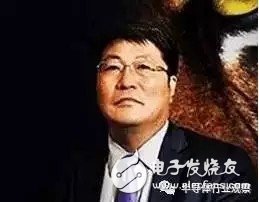
In an interview, Zhao Weiguo said: "The growth of a company needs to be deep in resources and strategy. Our country provides tremendous strategic depth and resource support for the growth of enterprises, especially high-tech enterprises. This is our biggest However, opportunities often coexist with difficulties, China's science and technology industry is weak, and now some developed countries have taken a slap in the face of China's rise in science and technology. China's international development in science and technology, the actual resistance encountered It is beyond any other industry. If we compare the development of high-tech industry to a marathon, then every 100 meters, we must use the speed of the sprint to run!"
The above committee's evaluation and Zhao Weiguo said that it is the true portrayal of Ziguang and its individual, even the semiconductor industry in China.
2, Zhu Yiming
List reasons: Leading the company to launch A-shares, plan storage business mergers and acquisitions
Why It Matters: At the beginning of 2000, Zhu Yiming did research and development work in Silicon Valley, USA. In 2004, he started a business trip with a friend's garage, focusing on memory chips.
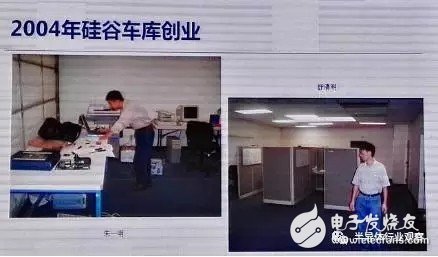
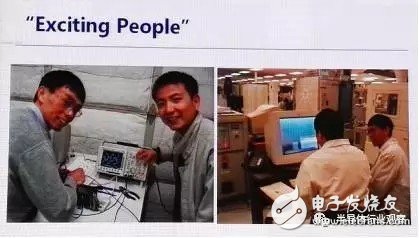
In 2005, Zhu Yiming, who has been in the Silicon Valley for many years, returned to China with his rich experience and technical strength accumulated in the field of memory chip design. He established the company in Enlightenment Star and acquired the Enlightenment Investment.
On August 18 this year, Zhao Yixin, which was founded by Zhu Yiming, listed on the A-share market of the Shanghai Stock Exchange, and rose 43.98% on the first day.
At present, Zhaoyi Innovation is planning major restructuring matters and the company's stock is suspended. The main project of the reorganization was the acquisition of US DRAM manufacturer ISSI (Integrated Silicon SoluTIon, ISSI was acquired by Wu Yuefeng Capital in July last year), and also involved in cooperation with Hefei Changxin.
Zhao Yi has developed smoothly this year, and Zhu Yiming and his partners are making steady progress toward the grand goal of creating China's “Samsungâ€.
3. Zhang Fan
Reasons for the list: Leading the A-share listing of Huiding Technology, the domestic fingerprint chip leader is fully displayed
Why It Matters: In the past two years, the explosive growth of fingerprint recognition applications in the smartphone market has resulted in Goodix and the founder and chairman of the company, Zhang Fan.
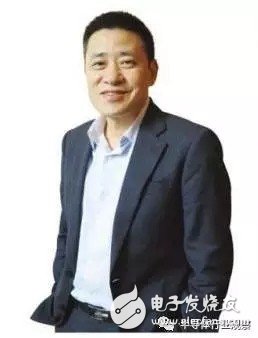
From the beginning of the year at MWC launched the world's first live fingerprint detection chip, to October 17 on the Shanghai Stock Exchange A-share main board, and then to 20 consecutive daily limit, the market value in early November exceeded the important investors in the Huiding - Taiwan's largest IC design The company's MediaTek (maximum market value of 76.1 billion yuan) has become the star of the fingerprint identification chip market in 2016.
Zhang Fan is very low-key. In the past few years, even in the interview, even the photos were not willing to log out. However, under his leadership, Huiding's sales in the first three quarters of this year reached 2 billion, with a profit of 600 million.
Zhang Fan said that I don't think about short-term fluctuations. One quarter or even one year of fluctuations, I think it is relatively short-term. For example, our profit last year was actually less than the previous year, because when we found the opportunity, the R&D investment will increase. I don't care too much about whether the short-term financial curve looks good. Shareholders also know that our high-tech industry will not look at short-term statements. Because technology companies will not give up long-term benefits for short-term benefits. We will communicate this basic idea with shareholders.
The mobile phone market is highly concentrated. If an important case is not obtained, the market share will change, which will affect short-term performance. In the future, we cannot make mistakes, nor can we not defeat them, but in the long run, we have firm confidence.
4. Liu Qiang
Reasons for the list: Leading the company is step by step, acquiring Beijing Haowei, low-key and domineering
Why It Matters: Liu Qiang founded Beijing Junzheng Integrated Circuit Co., Ltd. in 2005. At that time, Jun was the largest CPU chip supplier in the field of education electronics and e-books in China, and the largest in the field of PMP (portable multimedia player). One of the two main control chip suppliers.
Liu Qiang is the chairman and general manager of Beijing Junzheng, executive director and general manager of Junzheng Times, and led the development of the embedded XBurst CPU.
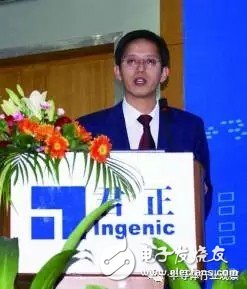
At the beginning of the establishment, Junzheng was not optimistic. At that time, Liu Qiang set the company's goal to develop domestically produced CPUs and achieve industrialization. At that time, the marketization of domestic CPUs or CPU cores such as Ark, Hanxin, North Volkswagen, Guoxin, and Godson could hardly be said to be successful, and pessimism was everywhere.
The low-key Liu Qiang is silent and focused on R&D. Under the same process, the 32-bit embedded CPU core XBurst independently developed by Junzheng has improved its computing performance by more than 80%, multimedia capability by more than 100%, power consumption by 70%, and size by 50%. This surprised the industry. One of the founders of Spreadtrum, Chen Datong, the founding partner of Huashan Capital, evaluated the monarch's reputation as "the heart is clear and the world is perfect" in a semiconductor forum.
When talking about the firm choice at the beginning, Liu Qiang’s words "You feel that there are no friends on business trips, but the train station is still very crowded" is impressive. The real entrepreneurs should be like Liu Qiang. Others think that there is no opportunity, it does not mean There really is no opportunity.
Today, Junzheng is already one of the best processor manufacturers in China, and its marketization has been smooth and smooth. A few days ago, Junzheng officially announced that it plans to acquire Beijing Haowei, the world's third largest CMOS manufacturer, and Sibike, the domestic CMOS manufacturer, with a total investment of 12 billion yuan, and enter the CMOS image sensor chip field.
Beijing Haowei was formerly the United States, with sales of US$1.25 billion in 2015 and shipments of 872 million units, with a global market share of 12%.
This is the first case in which the international semiconductor company of Chinese capital mergers and acquisitions officially cooperated with the domestic industry since the establishment of the big fund. Pure industrial cooperation and complementary market areas, the successful integration of this case has a profound impact on the international mergers and acquisitions of Chinese semiconductor companies. Junzheng's acquisition of Haowei and Spirt is not only to enter the field of CMOS ImageSensor, but also to find China Integratedcircuit Success. road.
Such mergers and acquisitions, low-key and domineering! Full of Liu Qiang style.
5. Zhang Xiaoqiang
Reason for listing: I know Intel's TSMC development master
Aspect: Zhang Xiaoqiang, the name of the name does not seem to be high, not the darling of the media, but it has long been famous in the semiconductor industry.
Zhang Xiaoqiang, now the deputy general manager of TSMC's technology and design platform, is the treasure that Zhang Zhongmou's father has earned from Intel. He has worked at Intel for 19 years, from 90 nanometers to 45 nanometers. He has led the development of advanced process technology platforms. He is the first Chinese to receive the Intel academician title because of his technological breakthrough in mobile processors.
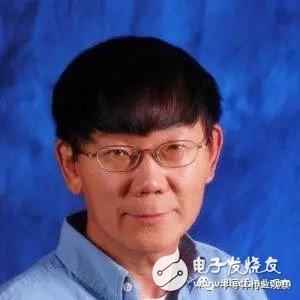
Prior to joining TSMC, his research focused on embedded memory technology development. This technology is the key to future high-performance computing, and Intel has placed memory as the focus of future technology development.
It is reported that Zhang Xiaoqiang has 55 US patents in the field of integrated circuits. In addition to his embedded memory expertise, TSMC may also participate in the development of automotive semiconductor and high-performance computing processor (HPC) process technology.
The current IC manufacturing is in full swing, and the competition between Zhu Qiang in the industry is becoming increasingly fierce. The rise of the new force in China, represented by SMIC, will surely play an important role in the future IC manufacturing market competition. Therefore, TSMC, which is the industry leader, is also preparing for the rain. The role played by the day will be highlighted.
As Zhang Xiaoqiang is at such a height, its choice seems to be very limited. In addition to the current two IC manufacturers in the world - Intel and TSMC, it seems that it is difficult to have a third choice. It seems that high people also have troubles of happiness.
6. Jiang Shangyi
Reason for listing: Serving as an independent director of SMIC, contributing to the development of the IC manufacturing industry in the motherland
Why It Matters: A few days ago, as the former chief operating officer of TSMC, Jiang Shangyi announced that he was an independent director of SMIC, which attracted attention and various associations. Jiang Shangyi was looking for a stage for personal achievement, going to the mainland for development, or chairman of TSMC. Zhang Zhongmou's one-step trick is to make a contribution to the development of cross-strait semiconductors and become a hot topic.
Jiang Shangyi is 70 years old. He has been involved in CMOS, NMOS, Bipolar, DMOS, SOS, SOI, GaAs laser, LED, electron beam lithography, silicon-based solar cells and other projects in the semiconductor industry for 40 years.
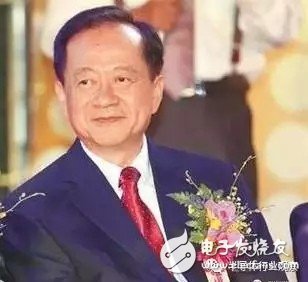
During TSMC, Jiang Shangyi led the development of key nodes such as 0.25um, 0.18um, 0.15um, 0.13um, 90nm, 65nm, 40nm, 28nm, 20nm and 16nm FinFET, which is to follow TSMC's industry status from technology. The person develops into the soul of the technology leader.
Jiang Shangyi’s foundry in Taiwan and TSMC’s prestige and seniority are both highly respected and well-respected. They certainly have a very professional and profound understanding of the Foundry industry and will definitely help SMIC.
At present, SMIC's independent directors can be described as super-luxury: the former president and founder of ARM, William Tudor Brown, the internationally renowned semiconductor entrepreneur Walden and Cadence CEO Chen Liwu, the famous Chinese lawyer, Zhou Hua, the former SMIC of Jiang Shangyi Independent Dong Ma Hongsheng is also a heavyweight executive of Yuan Intel.
In 1968, Jiang Shangyi received a bachelor's degree in electrical engineering from National Taiwan University, a master's degree in electrical engineering from Princeton University in 1970, and a doctorate in electrical engineering from Stanford University in 1974.
After graduation, Jiang Shangyi worked at Texas Instruments and Hewlett Packard. Returning to Taiwan in 1997, he served as vice president of R&D at TSMC. He is the longest-serving person in charge of TSMC in TSMC.
During TSMC, Jiang Shangyi expanded the R&D team from 120 to more than 7,000 in 2013, and the annual R&D expenditure surged from NT$2.5 billion to Thirty-seven billion in 2011.
When he retired at the end of 2013, he worked as a co-chief operating officer at TSMC. After retirement, he also served as a consultant for TSMC's two-year chairman. The goal was to make TSMC 7nm a world leader.
The 70-year-old grandfather who has retired is now out again. It can be seen that SMIC’s hunger and thirst for talents is also enough to show the company’s sincerity, so that the industry’s big coffee can come out and contribute to the development of the mainland IC manufacturing industry. power.
7, Gao Qiquan
Reason for listing: Serving COO in the Yangtze River, continue to dig people
Why It Matters: China's Taiwan DRAM General and former Huaya Branch Chairman Gao Qiquan jumped to the Ziguang Group last year to shake the industry. Today, less than a year in China, in August this year, it is reported that Gao Qiquan is not only the chief operating officer of the Yangtze River, but also plans to dig. Talents in Taiwan.
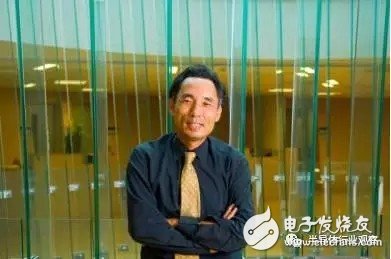
Gao Qiquan has used his own personal contacts to dig several heads of South Asia Branch and Huaya Branch. According to the news, there are nearly ten cadres who are known to have decided to quit. There are many senior executives at the retired deputy level. What is important is that these "will" will follow. How many "batrymen" have passed in the past, causing a collective job-hopping effect. It is reported that there will be at least one hundred DRAM talent transfer camps in Taiwan.
The development of the science and technology industry in mainland China is not a news bullet. In addition to mergers and acquisitions, Chinese manufacturers have paid a high salary, and the market has three times and five times the salary. This has given Taiwan a chance to stay and retain ownership. The issue of good technology vendors is constantly being raised.
Gao Qiquan’s coming to the mainland to do things is a good thing for us, but it is not a panacea. Although it is a semiconductor, no money is impossible, but money is not a panacea! If we want to improve in all aspects, we have to rely on ourselves to do all the work in a down-to-earth manner.
8. Liu Ming
List reasons: brave and hard domestic FPGA practitioners
Aspect: Liu Ming is on the list, and some people may vomit. It is expected.
As the leader of the domestic FPGA manufacturer Jingwei Yage, Liu Ming can be described as a lot of troubles in 2016. The company's operation has a relatively large problem, and related topics have been on the rise for a while. How to do a good job of local FPGA products and markets, once again placed in front of Liu Ming, and all the operators who are committed to the rise of domestic FPGAs.
As the CEO of Jingwei Yage, Liu Ming has rich educational background and work experience in China and the United States. Before going to the United States for further study, he once worked in the country, worked as a soldier, worked as a worker, and taught books. He has successively obtained four bachelor degrees in radio technology and master degree in integrated circuit design from Beijing University of Posts and Telecommunications, Ph.D. in computer communication network from the University of Virginia, USA, and master's degree in international business management from Boston University.
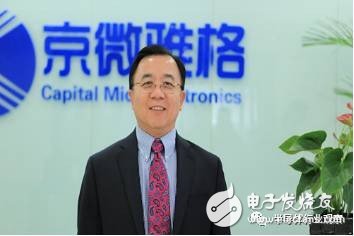
Liu Ming has held senior management positions in a number of multinational companies (American Communications Satellite Corporation, Iridium Corporation, Aizhonglian, etc.) and international organizations (International Mobile Satellite Organization), and has more than 20 years of strategy. Comprehensive corporate management experience in planning, business operations, laws and regulations, capital finance, human resources, market development, project management, product development, engineering operations, after-sales service, and customer support.
After returning to China for business in 2005, he served as Chairman and CEO of Jingbaoli Microelectronics Technology Co., Ltd., which he founded the overseas returning doctoral team.
As for Jingwei Yage, there are indeed problems. However, similar problems may not exist only in one or two companies, not even in the electronic semiconductor industry, which is a common problem in the whole society. You should not kill one person just to vent your anger.
Here, I sincerely hope that the domestic FPGA has a good development, I hope that Liu Ming and related teams will continue to contribute to the road of FPGA industrialization in China!
The above-mentioned eight semiconductor business reds who were “outstanding†in 2016 were just a small editor. After all, everyone gathers firewood high, the semiconductor industry, especially the development of China's industry, requires the joint efforts of all semiconductor people!
Sum up the past and look forward to the future. See you in 2017!
External Cavity Tunable Laser,Laser Grating Sensor,Bragg Grating Stabilized Laser,Grating Stabilized Diode Laser
AcePhotonics Co.,Ltd. , https://www.cgphotonics.com